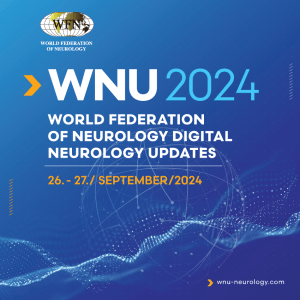
This course shares its name with the book by Dr Marco Mula, which Dr Donnelly has reviewed.
This one day Comorbidities of Epilepsy course, run by Dr Marco Mula and Dr Mahinda Yogarajah is in its second year. It provides a confident and useful view into commonly encountered difficulties such as headache and pregnancy, as well as less prominent areas like sexual dysfunction and sleep.
The course had three sessions. The presentations were succinct, entertaining and provided us with a glimpse of the future while reminding us of the giants of medicine upon whose shoulders we stand.
The attendees were a predominantly from a neurology background. Although there were trainees, consultants, with some allied health professionals linked to epilepsy the content was pitched at a level beyond specialty training.
There were interactive question sessions, which involved the whole group.
The lectures provided useful updates on current guidance, highlighting where evidence may be lacking and how we may best approach areas which have great importance to our patients, but have not received much attention from the research community.
In a busy clinic, it can be tempting to focus only on seizure frequency and medication, while ignoring the less evidence supported areas of sexual function, sleep and mood. To a person with epilepsy, any of these can radically affect quality of life, and this course allowed us to view the existing practice, with a balanced view of the evidence. There were practical views throughout and case reports brought relevance to each area.
The course began with an update on the recent pregnancy guidelines from John Craig, followed by a look at headache and bone health. Fergus Rugg Gunn offered a beautifully illustrated view on the history of ictal and cardiac risk. The complex interaction between epilepsy/anti epileptic drug treatment and increased cardiovascular risk factors as well as the increased risk of cardiac dysrhythmias is significant, reminding us of the NICE guidance to do an ECG on all patients with epilepsy.
Dr Yogarahajah covered sexual dysfunction and epilepsy. This is an under explored area, and appears to be more common in patients with epilepsy, particularly temporal lobe epilepsy. Anti epileptic medications can also affect sexual function, and the known effects were reviewed.
Arjun Sen covered the network disorders of Alzheimer’s and Epilepsy and discussed how these may be linked and how best to consider the choice of anti epileptic medication.
The afternoon session provided a practical approach to sleep, and Dr Mula’s experienced overview of depression and psychosis, with interactive questioning, and a discussion about the best approach to grey areas.
The Comorbidities of Epilepsy course can provide the neurologist, or general physician, with confidence to approach the multiple ways a life is affected by epilepsy. By at least helping us to define the problem, and by offering practical considerations we can provide more comprehensive support to our patients.
This one day course is informative, and is unique in the approach to a common neurological condition. It has relevance to all general neurologists, irrespective of training level, as well as clinical nurse specialists. It is useful at consultant level and beyond, pitched more for the neurologist who may have a focus other than epilepsy.

